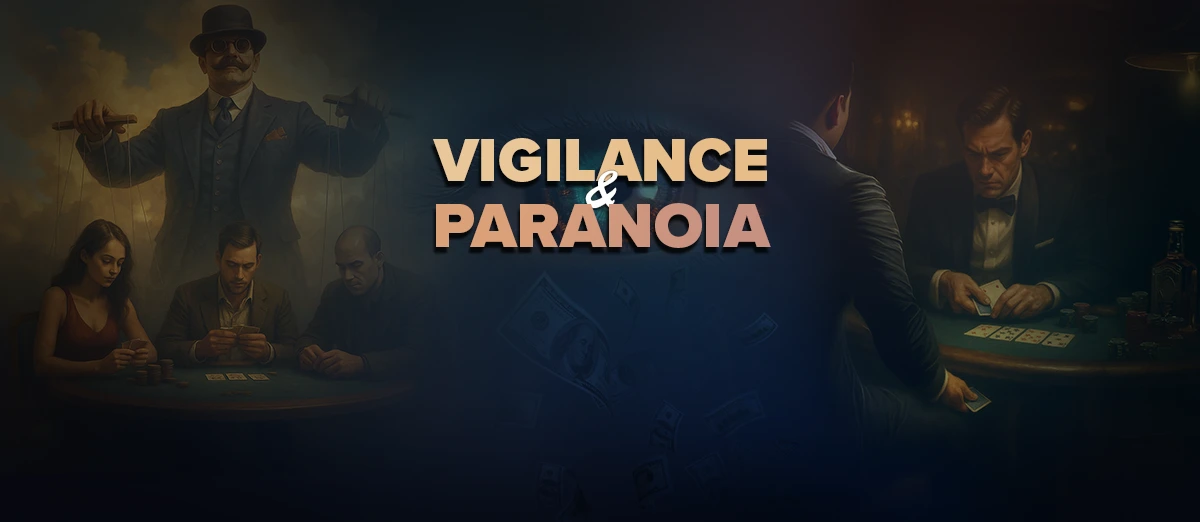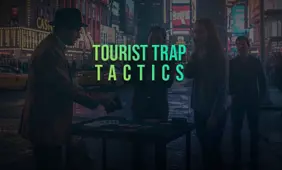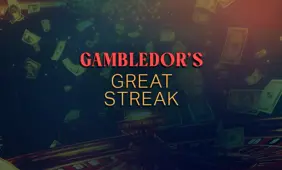R. Paul Wilson On: Recognizing the Hidden Threat of Gambling Scams

In the realm of gambling, players must strike a balance between vigilance and paranoia. While it's essential to stay alert to potential deceit, not every situation deserves suspicion. By understanding cheaters’ preferred methods, we can often predict where we are most vulnerable to being swindled and identify environments where our money and safety are more secure.
Today, we delve into the mindset of hustlers, exploring the opportunities they seek by momentarily stepping into their shoes. This crooked perspective should help us avoid getting cheated and assess 'how,' 'where,' and 'when' our gameplay becomes attractive to thieves.
Being cheated is akin to being mugged, with the added twist that we may never realize our money was deceitfully taken. The aim of many, though not all, cheaters is to keep their victims in the game. They prefer to milk their "cattle" rather than slaughter them, extracting as much as they can while preserving the victim's belief that a win is still possible if luck should finally turn in their favor.
The Subtle Art of Keeping Gamblers on the Hook
Some crooked games are remarkably subtle, crafted with psychological finesse to keep unsuspecting players on the hook. Even the more clumsy cheaters can lure their targets back, as long as those targets believe that cheating is "impossible." This belief is often skewed by their own desire to play and win. While the true nature of the game might be glaringly obvious to outsiders, there's a reverse logic at play: victims find themselves drawn deeper into the con by a kind of psychological quicksand.
There's an old aphorism that a little knowledge can be a dangerous thing, and this is especially true in the realm of gambling. Many card players have, at some point, encountered a magician or seen a movie character demonstrate cheating techniques with cards or dice. They often leave with the false confidence that they're now equipped to spot these tricks in the heat of a live game. However, as someone who performs these moves professionally, I can assure you that watching me or my colleagues deal from the bottom, execute a false shuffle, or switch dice offers little protection—except for the crucial understanding that such maneuvers are indeed possible.
I know several ways to deal from the bottom, and while some methods appear more convincing than others, they become truly invisible only when executed in the right circumstances—moments where suspicion is least likely. For instance, I might openly showcase gambling sleight of hand for an audience, but I could also employ those same moves to perform a seemingly impossible magic effect, where the sleight is entirely obscured by the context of the performance.
At a poker table, even a vigilant player might focus on how the cards are shuffled and dealt. However, if they're up against an expert mechanic, the sleights will be seamlessly integrated into the natural flow of the game, making the scam impossible to detect. I know professional cheaters who can deal flawless seconds (where the top card is retained while the second card is dealt). When demonstrated out of context, these moves may seem merely "adequate," but within a game, they are exceedingly dangerous.
How to Spot the Signs of a Crooked Casino Game?
So, what's the point of knowing what's possible with a deck of cards if the likelihood of visually detecting these moves is almost zero?
This is where we must look beyond what we can see and analyze the conditions of a potential cheating scenario. By assessing if enough of these conditions point to possible foul play, we can better gauge the likelihood of encountering a crooked game.
If you're playing in a well-known casino on the Las Vegas Strip, the likelihood that cheaters would plant a dealer and manage to manipulate the seat selection system to reach your table is quite low. That's not to say it hasn't happened on occasion, but you can take some comfort in knowing that the game is safeguarded by casino security, gaming regulations, and a highly motivated operator—the casino itself—keen on avoiding any potential scandal.
However, not all poker scams hinge on a mechanic dealing the cards. Collusion is an ever-present risk. Watch out for small groups of players who may be signaling each other or essentially playing from the same bankroll, avoiding direct confrontations to focus their efforts on you. This unethical behavior is all too common, especially online, making it essential for players at any table to remain vigilant.
Now, picture yourself in a foreign country where a "new friend" leads you to a "private casino." You play blackjack for hours, only to stumble home after losing thousands. Think you might have been cheated there? This scenario, while extreme, is more common than you might think, particularly online, where much of our gameplay is conducted from foreign locations. Some of these locations may lack the protections we expect from reputable live dealer casinos, making them fertile ground for crooked operations.
Inside the Deceptive Mind of a Con Artist
The real danger lies in becoming convinced that deception is impossible simply because we believe we understand all the conditions of a given situation. Often, victims of con games continue to lose money because the thought that someone would stoop so low or go to such lengths to "fake it and take it" is simply beyond their comprehension.
Magicians exploit this same principle, employing methods so outlandish that most people would never imagine someone would go to such extremes just to make a playing card vanish and reappear inside an orange!
Now, imagine that the prize is more than just a round of applause—it's a steady stream of easy money, delivered directly by someone who believes they fully understand the game they're playing. In reality, they've unwittingly stepped into the gambling equivalent of a bear trap. One scam I know of involved cheaters booking hotel rooms for an extended period so they could drill through walls and install multiple hidden cameras to monitor a game from the adjoining suite. These cameras fed secret information to players in the other room.
This operation was set up, executed, and then completely dismantled, with the cameras removed and all traces of drilled holes and hidden wiring erased. They then reinstalled the system overnight in a new location to fleece the same mark for more money. If you had asked that victim how he might have been cheated and suggested that his opponents drilled through concrete walls and laid half a mile of wiring, he would have thought you were insane!
Cheaters Are Going to Cheat
It's as simple as that. And the most cunning among them are constantly dreaming up new and ingenious methods to beat the system and separate unsuspecting victims from their money. Whether it's happening face-to-face at a physical table or through digital manipulation online, these individuals are always looking for an edge.
Their tactics range from old-school sleight of hand to high-tech wizardry that’s almost impossible to detect without expert knowledge. In the next section, we'll dive into the fascinating world of gambling deception, starting with a look at the types of crazy devices used to cheat players in the past, and then we'll explore the modern tools that could target your stack when you least expect it.





Review this Blog
Leave a Comment
User Comments
comments for R. Paul Wilson On: Recognizing the Hidden Threat of Gambling Scams